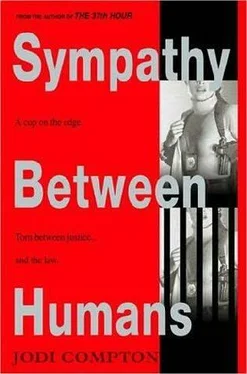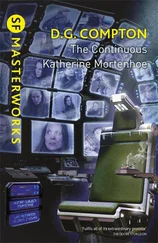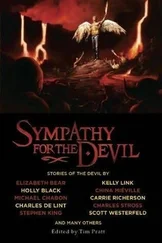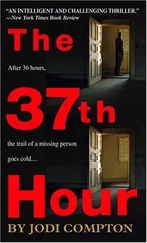“Listen,” I said, “do you have a photo of Aidan that’s more recent?” I said.
“No,” she said. “Is that a problem?”
“Yes,” I said. “The years between 12 and 17 are important ones. Kids change a lot. Hair gets darker, and faces change shape as they lose baby fat. Or sometimes kids gain weight. And they pierce and bleach and dye, too.”
“I don’t think Aidan would do that,” she said. “Besides, he won’t be hard to identify. You really can’t miss the hand,” she said.
“No, I suppose not,” I said. “How’d that happen, anyway?”
“A dog,” Marlinchen said. “He was bitten.”
“Ouch,” I said. “How old was he?”
“Three, maybe four,” Marlinchen said. “I really don’t remember it, except he was in the hospital a long time, and when they brought him back, I was scared of him, because of his hand. I started crying, and wouldn’t play with him.”
“Really?” I said. But maybe it wasn’t so strange, that a little girl would be so rattled by her brother’s frightening injury. “Tell me something else: How did you find out Aidan had run away from the farm in Georgia?”
Marlinchen nodded. “Oh, that. E-mail,” she said. “After Dad had his stroke, for a few days I spent a lot of time in here, looking through all his papers and financial records and so on. I read his e-mails on the computer, and at the bottom of the list were the old ones. You know, the ones you don’t delete?”
“You have his password?”
“No, the password automatically comes up when he logs in, as asterisks, you know?”
I nodded.
“So I just had to hit Return.” Marlinchen untucked a leg that had been crossed under her other thigh. “I wasn’t reading all the messages, but this one said, ‘Re: Aidan,’ so it caught my eye. I opened it and I saw Pete’s message to my dad, and under that, my dad’s original message to him.”
A farmer with e-mail? Well, why not?
“The messages were both about Aidan having run away. I guess there was a miscommunication about who’d report it to the police. I was afraid that neither one had, so I called Deputy Fredericks in Georgia.”
According to what Fredericks had told me, the communication between Pete Benjamin and Hugh Hennessy had been quite clear: that Hugh would deal with Aidan’s having bolted from the farm. But I didn’t want to get into that issue at the moment. I said, “Marlinchen, Deputy Fredericks told me that Aidan had run away to Minnesota once before.”
Marlinchen nodded.
“Your father sent him back, is that right?” I asked.
She nodded again, looking down at the floor.
“Did anything in particular cause Aidan to run away?” I asked.
She shook her head.
“Are you sure?” I pressed her.
“He was homesick. He came here and Dad sent him back. That’s all.” She chewed her lower lip. “Detective Pribek, what I said earlier, about not knowing anything about Aidan’s day-to-day life, or hearing from him… I know it might sound strange, that Aidan was sent away, and we’ve had so little contact with him, but after Mother died… it changes so many things in the dynamics of a family. It’s hard for people to understand, and I don’t think I explain it very well.”
“It’s not so hard to understand as you might think,” I said. “My mother died when I was young, and later my father sent me to Minnesota at 13, to live with a great-aunt I’d never even met before. It sounds severe, but in the end it was for the best.”
“Then you understand,” Marlinchen said, her voice almost relieved. “I knew there was a reason why I felt like you could help.”
“I’m not in a position to do that much,” I cautioned her. “I’m just going to do some things over the phone and on the computer that’ll go faster for me than they would for you. I can’t travel to Illinois or Georgia.”
“I know,” Marlinchen said quickly. “Anything you can do, I appreciate.”
“Then,” I said, “I need to talk to your brothers.”
***
Itwas Colm who’d been watching TV in the family room earlier; when I returned he was still there, lounging on the couch in T-shirt and sweatpants.
“Hey,” he said, not making eye contact.
The big TV screen showed an outdoor gun range with a glimpse of East Coast greenery in the background. Young men and women in blue shirts rolled to their feet, raised weapons, and fired rapidly at the black outlines of targets.
“It’s a special about Quantico,” Colm said. “That’s where they train FBI agents.”
“I know,” I said, watching. For a moment it transfixed me, all the youth and righteousness and promise that the trainees seemed to embody, standing on a vista where the best of their professional lives was just about to open up before them, and my heart felt briefly leaden at the sight.
Then I shook my head, clearing away the reverie, and said to Colm, “Maybe you could turn off the TV for a couple of minutes. I just need to ask you a few questions about your brother.”
Colm rolled off the couch to switch off the television, and I took a seat, flipping open my notebook. “When was the last time you had contact with Aidan?” I asked.
“When he left,” Colm said, taking a seat at the other end of the couch.
“Nothing since? Letters, phone calls?”
Colm shook his head, chewed at the corner of a fingernail.
“Based on what you know about him, can you guess at where he might have gone when he ran away?”
Colm shook his head again.
“Can you tell me anything about why it was Aidan who was sent away?” I asked. “As opposed to both the twins, or one of the younger kids.”
Colm shrugged. “I don’t know.”
“You can’t speculate at all?”
“I was nine,” he said. “Nobody told me anything.”
“Thanks,” I said, flipping the notebook closed.
“That’s it?” Colm said, startled.
“That’s it,” I affirmed, getting up.
“You didn’t even write anything down,” Colm said.
“I don’t usually write down things like ‘I don’t know’ and ‘I was nine,’ ” I said.
Colm looked a little sheepish.
“There’s not a lot you can tell me if you haven’t seen or heard from him,” I explained.
He turned the television back on. The agents-in-training were now learning to break down and clean their guns. I wondered if the field of law enforcement held an appeal for Colm Hennessy, like it did for many boys his age.
“They do really good weapons training at Quantico,” I offered.
Colm’s light-blue eyes flicked to me again. “What kind of gun do you use?”
“A.40 caliber Smith & Wesson.”
“Isn’t that a lot of gun for a woman to handle?” Colm asked.
“Excuse me?” I said, though I’d heard him clearly.
He shrugged. “It’s a big gun.”
It was on the tip of my tongue to tell him that I’d been the second-best shooter in my Sheriff’s academy class, but it was probably beneath the dignity of a county detective to get into a verbal pissing match with a boy half her age. So I bit my tongue and asked, “Are you interested in shooting?”
“Not really,” Colm said. “Dad hates guns. He won’t have one in the house, not even for hunting.” He shrugged. “Doesn’t matter. I’m more into close-quarters fighting.”
“With what,” I asked, “a television remote?” Something in his dismissive tone had pushed me over the edge.
Colm really looked at me for the first time, as if he’d been bitten by something that he didn’t think had a mouth. His lips tightened with embarrassment, and finally he said, “No, I have a heavy bag. And weights, out in the far garage.”
***
Upstairs, I foundLiam Hennessy at the computer in his father’s study. There, he told me essentially the same thing Colm had, just in more words. Liam, too, hadn’t heard from or written to Aidan since his older brother left for Illinois, and he too felt that Aidan had been sent away from home only because their father was struggling to raise five kids.
Читать дальше












